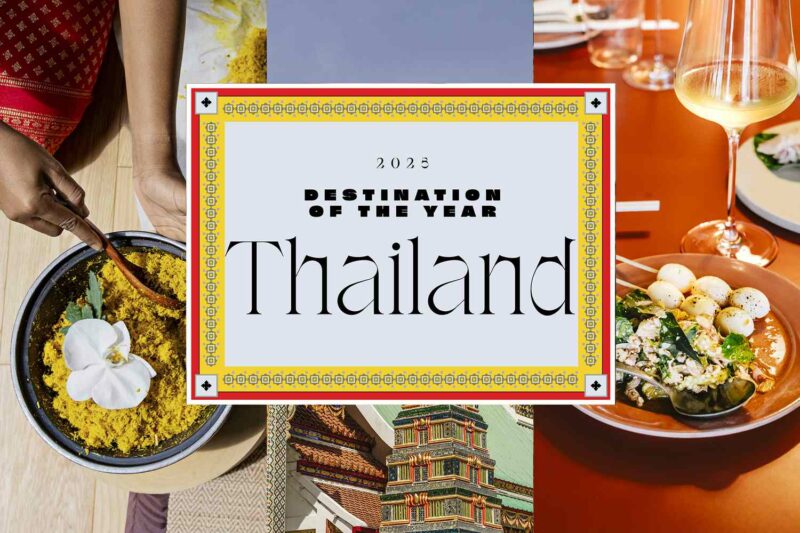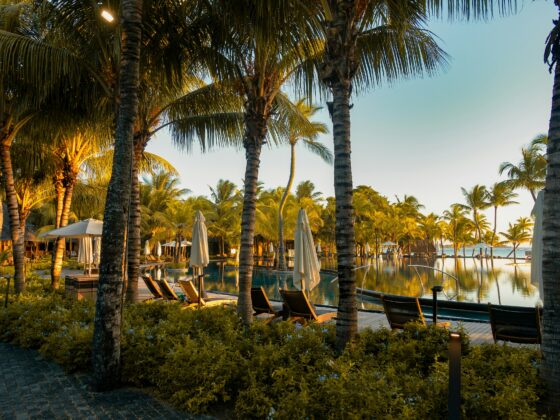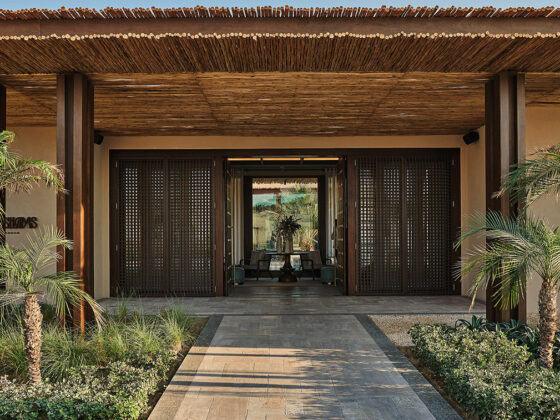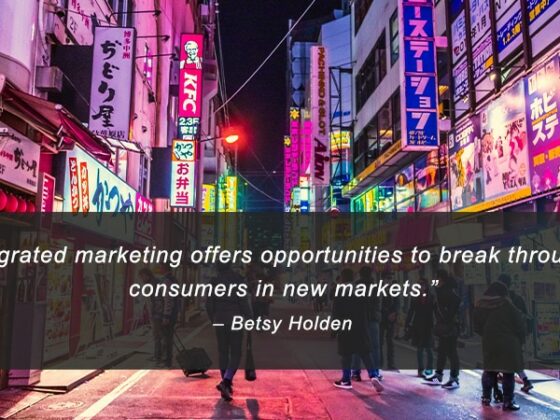Josiah:
What’s going on in San Francisco? I hear this question come up time and again and, as a resident of this beautiful city, it’s a question I’m asking myself. Today, we’re going to speak with a native San Franciscan who has spent her career working across a wide range of leadership roles in this city and has the experience and perspective to help us answer this question. Cassandra Costello is the Chief Policy Officer for the San Francisco Travel Association. In this episode, we talk about what’s going on in San Francisco, if traveling here is safe, what’s going on in the neighborhoods of this city and how hospitality providers can get involved with local government and play a role in the city’s recovery. But to start us off, Cassandra shares why tourism matters in the first place.
Cassandra:
Tourism is the economic engine behind San Francisco. It is a huge job generator here. In fact, just this past May it was the largest growing sector in jobs hospitality. We added 1,700 jobs in San Francisco just in the hospitality sector. So people’s livelihood depends on tourism and our city wouldn’t be what it is today without tourism. You know it’s a small city. At the end of the day, at seven by seven, we have less than a million people who live here, yet we have world-class restaurants, world-class arts and culture scene. We have these attractions. We have amazing amenities here that we rely on visitors to help support and, in fact, residents actually get it. We just got results from a resident sentiment survey 95% of residents said that tourism was important or very important to San Francisco and 92% of them said that tourism had a positive impact on the city. So that’s why tourism matters.
Josiah:
Well, it’s super exciting. Even just outside of my house I can see a lot of people walking by and it’s been interesting over the past couple of years to watch that mix change and it brings a lot of life to our neighborhoods. I feel like even just in the lower hate and I know neighborhoods across the city that fuels restaurants opening up.
Cassandra:
It’s just a lot of life and economic activity that’s exactly right and I think, hitting on the note of neighborhoods, people come to San Francisco for a lot of reasons. I think what surprises them is when they walk from Chinatown and have one cultural experience and then in two minutes they’re in North Beach and then a short walk later they’re in Fisherman’s Wharf, and the story goes on. Our neighborhoods are thriving. I think programs that started during the pandemic, like our Shared Spaces program, where you’ve got restaurants spilling onto sidewalks we have over a thousand new outdoor options for dining now because of that, that brings so much more livelihood and vibrancy to our neighborhood and it’s the culture and the people in the community in those neighborhoods that really makes San Francisco the special place that it is. So, yes, Lower Haight, as we spoke earlier before, I mean the Outer Sunset. That’s got its own character. And right next to the ocean now we have the Great Highway close at certain times. You have this beautiful passageway right along the Pacific Ocean. There are thousands of people out there on the weekends riding their bikes and scooters and skateboards. I don’t know that. Everybody knows that about San Francisco.
Josiah:
Well, they need to, and that’s why we’re talking, because there’s so much in the city. Why have you focused your career on San Francisco on so many different levels, from government to tourism and now leading policy here at the San Francisco Travel Association? I think you touched on this, but is there anything else that comes to mind on why you focus so much energy on San Francisco and promoting San Francisco?
Cassandra:
So I’m a native San Franciscan. We moved away when I was little and at every opportunity I wanted to come back. When my parents said, do you want us to throw you a birthday party? I said no, I want to go to San Francisco and I want to stay in a hotel and eat at a nice restaurant and just be. I just want to be and look around and see, because I thought it was the most magical place on the planet, and the moment I moved out of my parents’ house I came right back to San Francisco and have not left since. This is a place that I love. I’m so passionate about it, and so when I think about how I can make the biggest impact positively on my city, tourism is the logical place. It’s such an economic driver and if I can help push that forward and create more jobs and create the experience that I had as a kid, as a visitor, coming here for people around the world, I’ll feel good at the end of the day.
Josiah:
I love that, and the reason I reached out to you was to try to help people understand what is it actually like in San Francisco. I’m a little bit tired of going to conferences in other cities and seeing a narrative around, a very negative narrative around San Francisco, and you and I both live here and have lived here for years. We both grew up here and we know what it’s like here and the city has challenges. But I guess my question for you is what does the world need to know about what’s going on in San Francisco right now?
Cassandra:
So I think you’re right, the city does have challenges, like every other major US city, right and frankly, every other international large city, and I think the headlines have sensationalized those challenges and so I think you are absolutely right that the narrative out there does not meet the experience that we have as residents here or that, frankly, that visitors are having. We surveyed in our last visitor survey. We say we ask them a lot of questions. One of them is would you return? 92% of people who came here last year said that they would return. So what we’re hearing and seeing is that those headlines are not meeting the expectations or the reality of what’s happening on the streets in San Francisco. What I’m excited about I’m excited about the opportunity for small businesses to thrive and expand. We’ve got new programs like the vacant to vibrant program, which is creating opportunities for new pop-ups. We have our welcome ambassador program, which is basically a mobile concierge of hospitality, trained professionals out there on the street Think of our, the old model of our visitor center, which was a stagnant storefront that those professionals are all out on the streets greeting visitors and it has been such an exciting popular program. Other things that I’m personally excited about I love Stern Grove. It’s a free concert. On the west side, we have outside lands coming, we’ve got hardly strictly bluegrass right behind it, and we have new festivals and activations popping up kind of left and right. Another thing, lastly, that I’m really excited about is that you know we are world class city and we’re attracting world class events. We have Super Bowl coming, we have the World Cup around the corner and then this fall we’re hosting APEC, which is the Asian Pacific Economic Corporation. That is a massive international. The eyes will be on San Francisco. So we, time and time again, we continue to get chosen for these world class events that will help our community, that will stimulate our economy and create more jobs for folks.
Josiah:
It kind of spans the gamut of different types of people coming to the city. It’s not just technology conferences. I used to work in technology but I feel like for almost a decade it felt like everything was a tech conference and so you have kind of economic conferences, you have sporting events. But just digging into the challenges for a moment, because searching in Google for San Francisco travel, some of the recommended questions around like is San Francisco safe and how should people think about safety in San Francisco?
Cassandra:
So I do think that we have a perception problem versus a safety problem. When we look at the data around safety, our violent crime rate is actually at historic lows and I think that surprises people when they see the headline after headline about safety issues and then realize that wait a minute, this is a safe city and there is vibrancy in our neighborhood corridors and there’s vibrancy in our commercial corridors and the statistics are not matching the story. So we tell anybody coming to any of the major cities you know, use common sense, but we are very confident that we have a safe city and we are confident to tell visitors perspective or current visitors that they are safe here.
Josiah:
We’ve talked a little bit about neighborhoods and all the cool things going on in San Francisco’s neighborhoods. Why don’t we have more hotels in other neighborhoods? It seems like they’re concentrated in the downtown core. What are some of the barriers to having hotels or hospitality businesses in our other neighborhoods?
Cassandra:
I think it’s probably more of a zoning issue and demand. I mean, I think there’s a reason why we have as many cities. Do you know a core area where there might be more tourist amenities or attractions or restaurants? But I think this also plays into we have a whole hospitality network of short term rentals. We have, you know, 2,500 short term rental hosts registered within the city and they’re also providing hospitality to visitors coming into San Francisco. We actually just recently renewed our tourism improvement district and brought them into our assessment because they are part of the tourism fabric and offering those experience for those who want to live or want to stay in the lower hate, in the sunset, you know, in North Beach, whatever that looks like and they want a unique experience. So there’s room for all of it, especially when we have a big convention in town. That compression that big convention makes in terms of the downtown rooms pushes demand to outside of the downtown core and into the neighborhoods and that’s where the short term rental hosts can really pick up some of that slack.
Josiah:
What’s interesting. I mean, obviously, airbnb is a San Francisco company and but it’s interesting to hear that because I feel visiting a place is better when you have more options. Right, and I’m kind of a hotel guy so I have a little bit of a hotel bias. But we have so many beautiful neighborhoods and you’re experiencing in the sunset or lower hate or pack heights or another neighborhood is going to be significantly different than here, but you know some of the large conventions that you mentioned. Like it’s kind of nice to be at a hotel that’s right next to the convention center, right.
Cassandra:
And that makes a lot of sense, right, and we have hotels that really do cater to the convention market, and so that that all makes perfect sense.
Josiah:
How can hotels? Or hospitality providers in general work together towards the city’s recovery.
Cassandra:
Yeah, I really love this question because I think the hospitality community, like many other communities, are arguably tighter than they’ve ever been because of, frankly, the trauma that the world has gone through over the last several years and we’ve had to work really closely together and strengthen our relationships to make sure that we are recovering and it’s working. We are recovering. We grew 29% in terms of number of visitations, from 21 to 22. And in 2023, we have almost 24 million visitors that we expect in San Francisco. So we are seeing the visitors return, whether it’s business or leisure. The convention market is returning. The last couple conventions we had here actually had higher attendance than forecasted, so there’s a lot of positivity out there that we’re really excited about.
Josiah:
What is the next level of, I guess, growth or collaboration look like? Because I still feel a lot of these tourism conferences. If we look at kind of hotel recovery, san Francisco in many cases is an outlier in underperforming relative to other cities and recovery can be a journey. But like what does that next level of collaboration look like to move the city forward?
Cassandra:
Yeah, and just one note on that. I mean I think we’re definitely trying to get back to some aggressive numbers that came out of 2019. We’re number seven on the top 25 competitive market set as of now and we do want to get back to where we were. But I do think that data does surprise folks when they think about where San Francisco is in our journey to recovery. I think the level of engagement that we want to continue to have with our hotel, restaurant, hospitality community is there. We want folks to continue to engage with us. Tell us what they’re hearing, what they’re seeing on the ground from their clients. Also, engage with decision makers, right? The folks that are making policy, that are making zoning changes, that are, you know, working on legislation to convert from office to residential and downtown core areas, to make it easier to open a business, to make it easier for arts, culture and entertainment in the downtown area that is needing that vibrancy. Step up, engage. Call your local supervisor, call our mayor, right, call the policy makers. And then also tell your story right, a lot of the folks that work in the hospitality industry also live here and tell your story about your neighborhood and to tell the story about your favorite little hole in the wall restaurant. That’s what visitors want. They want that local experience, and who best than a trusted person that’s taking care of them in a hotel or a restaurant or wherever they may be? And so we want to encourage that storytelling, encourage those unique experiences, because we know that’s what’s going to bring people back to San Francisco time and time again.
Josiah:
I feel like there’s so much opportunity. A little while back I was talking to a hotel in Japan Town and they were talking about all the local partnerships that they’re putting together and meeting with community leaders and doing partnerships with creators of different beverage companies and yoga studios and, I guess, really immersing themselves in the fabric of the community and it felt, by working together they were able to lift everyone up and that was very encouraging for me because I think it’s good to see this on a city level. But obviously cities are this fabric of local neighborhoods and so it seems like there’s a lot of partnerships and working together that is going to be required here.
Cassandra:
I think that’s 100 percent right and I love that. Such a beautiful story. Japan Town is one of my favorite neighborhoods in all of San Francisco and it is the more collaboration, the stronger the neighborhoods are going to be, the stronger our destination is. As we mentioned earlier on this podcast, the strength of our neighborhoods, the uniqueness, are what’s going to bring people here time and time again to see that you know little pastry shop, that amazing ice cream shop that had that flavor they’ve never seen before. That mom and pop store where they brought a souvenir that they have in their home forever, whatever that looks like. And it changes neighborhood to neighborhood and each neighborhood also has their special vibe. And then there’s emerging neighborhoods, like Dogpatch, who’s got new restaurants and arts and culture scene. I mean, there’s it. We’re a constantly emerging, innovative, changing city and that’s what we’re going through right now is more innovation, more change. You know, as we’re looking at tech, we’ve got some tech who have downsized, but then we’re the place to be, if you want to be an AI. So that’s another evolution of our industry and of the folks who are coming into San Francisco to be successful.
Josiah:
I feel to be honest, having lived in and worked around, kind of like the big tech boom of the 2010s. There’s pros and cons. I think it brought a lot of money to the area. I think at moments, it also felt a little bit soulless. I think, as you know, honestly, that this area is, as you mentioned, the global hub of what’s happening in AI, probably one of the most interesting technology advances in a generation, and what is your hope for how that affects both the residents and the visitors of just the city at large over the next decade?
Cassandra:
I mean, I think there’s a lot of opportunity for the next wave of innovation here and I think you know as much, as as much as people might think of us as a tech city. I think we want to reframe that. Yes, we’re a tech city. We’re also an arts and culture city. We’re also a city of vast open space and parks. We have over 220 parks and open spaces in San Francisco, where a city surrounded on three sides by water, right we have beaches. This is a city of interesting people. It’s a city of welcoming. It’s a city that welcomes all and celebrates diversity and celebrates differences. That’s what we want to be known as and that’s what’s going to keep us strong and that’s what’s going to make us stronger on the other side of this, of the situation that we’re going through.
Josiah:
I like that a lot because technology or any sort of business can can generate some economic activity. That is a piece of the puzzle, but this is obviously a multifaceted city and actually let’s talk a little bit about parks, because you’ve spent some of your career working in and around parks and having leadership role in that nature is one of the things that is most compelling for me living in San Francisco. It’s what’s brought me back again and again and hopefully I never leave San Francisco, because I love the park system, I love the access to nature. This shows for hospitality providers how can they communicate to people considering visiting San Francisco Some of the beauty and the advantages of our parks and the nature that we have here?
Cassandra:
When we ask visitors what they’re going to do here or what they did here, the parks are always in the top three things. So Golden Gate Park has an incredible reputation that we continue to showcase and tell the world about. We also have really interesting innovative parks, like Salesforce Park, a park above the clouds. Really, I mean, we have world-class parks and when you have a time coming out of a pandemic where people wanted space, it was our opportunity to really showcase our open space. The Presidio is arguably one of the hottest parks and open spaces in the United States right now. Right With their TunnelTops program and expanding park system, their new restaurants, they’re an attraction all in and of itself. They have accommodations, plenty of things to do. You can easily spend several days there. The parks are what makes San Francisco so special. You’re anywhere you are, you’re within a 10 minute walk of a park. I don’t know how many cities can say that.
Josiah:
I still live in New York and obviously Central Park is beautiful, but it’s kind of like if you’re in another part of the city it takes a long time to get to green space and what I love is just kind of access to that here. I think another thing I’d like to talk about a bit is about how to engage with government, because you have a really interesting perspective on this. Being chief of staff in City Hall and for somebody who’s new to this whole world of engaging with government being a part of affecting change on a policy level, how would you advise hospitality providers to think about that or to get started with engaging?
Cassandra:
Yeah, so I think if you don’t tell the policymakers what your thoughts are, they won’t know. And so you can’t assume that because there’s been an article written about it because of course they must know they live here, that they know there’s so many different topics and problems and challenges every day that if you don’t elevate and be the squeaky wheel then you’re not going to get your point across. I think it can be intimidating to address a local official, whether it’s a local, state or federal, but I can tell you that you’re likely going to be met with welcome open arms. Offices are staffed with legislative aides as well as volunteers to take calls. Even if you don’t get a call back, the message has been provided Right. So I think, write an email, make a call. If that’s intimidating, there’s plenty of organizations to engage with, like SF travel, cal travel, the hotel council, the Chamber of Commerce. All have avenues and ways to engage that might be a little less intimidating. Maybe a you know city hall rally day is maybe more what you’re looking for with provided talking points. But I can tell you that the strength of the community speaking up is much stronger than anything else. People want to hear from their constituents and they want to make sure that they’re serving their constituents properly. The most traction that I’ve seen is if you show up for a meeting, whether it’s a public meeting or a meeting in someone’s office. That’s where the real policy and traction is made. When they hear the individual voices from a small business or a hospitality employee Interesting.
Josiah:
And for someone who has no idea where to start who, what meeting or kind of what? What person am I trying to get in touch with? Well, you are in the hate.
Cassandra:
So your supervisor is named Dean Preston, you’re in district five and they have an office at city hall. They oftentimes the local folks oftentimes have a local office hour in their communities, so maybe it’s a coffee hour every third Saturday at the farmer’s market, something like that. Harvest essentially has digers around. Saw no-transcript. I would just say, if that’s intimidating, try to get out of that shell and just say hello. Or shoot a quick email and say, hey, I just want to learn more about what you’re doing, or I want to share my perspective. Or what are the hours for the dog park? It was closed this morning. I need help, whatever that looks like, to make that avenue into the connection. I think would be well worth it.
Josiah:
Well, I love it and I think, both on a personal level and for kind of those of us working in hospitality in San Francisco and the broader Bay area, I want this to be an area that we lean into because I think it’s one thing to just talk about hey, I wish the city did this or I wish things were that way, but I’d love people listening to this to take that step of action. I guess, just to underscore the opportunity here, is there an example you can share of a policy change or something that took effect as a result of people kind of meeting with their elected officials and what’s most exciting for you in that area?
Cassandra:
Yeah. So first of all, I think the audience that we’re talking to is really powerful because there’s a lot of you right. This is one of the largest industries in San Francisco and people hearing from their workforce is arguably the most impactful voice out there. And you vote and make sure they know you vote right. So this is a very powerful, large audience. I think the story that I can speak to as of recent was during the budget process. The city has a limited amount of funds to use for discretionary purposes. Right, the majority of the city’s budget goes to salaries and wages and fringe and benefits, but there are some discretionary funding and that funding is fought over like tooth and nail and if you don’t speak up about your needs and about what you think those dollars should be spent, they’re not gonna be spent on your priorities. So, organizing people to come and speak out for example, I mentioned this Welcome Ambassador program. We were able to get funding for another two years for the program and I think that’s in large part because the community said this is important. We have an issue around perception of safety and this program is providing a feeling of safety and a feeling of welcome to people from all around the world, and this is exactly what we need to be doing as we recover from COVID.
Josiah:
As you kind of look into the rest of this year, what are you most excited by?
Cassandra:
Yeah, I mean there’s so much to look forward to. I mentioned that we’ve got some great visitor numbers where we continue to grow. We continue to welcome conventions to Moscone Center. We continue to have meetings that take place inside of hotels. This audience will know self-contained that terminology. We have these world-class events coming around the corner. There’s so much to celebrate and so much growth. We have emerging markets like India who are coming back stronger than they were pre-COVID. We have more airlift coming from here to the UK and back than we had pre-COVID. So there’s a lot of good story to tell on the international and the domestic side. There’s more good to come.





